

How to support your child in Year 6


Questions we are asked:
• When do I apply for secondary school?
• Can you advise us on a secondary school?
• What are the SAT’s?
• When do they happen?
• How do we get the results?
• What do they mean for my child?

• How can I support my child?


Secondary school applications close on 31 October 2024

Secondary school applications open on 1 September 2024

Seconda ry Schools
Secondary National offer day is 3 March 2025. We cannot advise on School Applications



Attend open days

Think about what is the school requires for admittance.


THE SATS TESTS
What are the SATs?
• The end of KS2 assessments are sometimes informally referred to as ‘SATs’.
• SATs stands for Statutory Assessment Tests and they are held at the end of Key Stage Two.
• It is a statutory requirement for year 6 pupils in state primary schools across the country to do the SATs.
• Tests are created by the Standards and Testing Agency

The SATs papers consist of:
• Grammar, punctuation and spelling (paper 1: GPS) –
What are the SATs?
Monday 11th May
• Grammar, punctuation and spelling (paper 2: Spelling) –
Monday 11th May
• Reading – Tuesday 12th May
• Maths (paper 1: Arithmetic) – Wednesday 13th May
• Maths (paper 2: Reasoning) – Wednesday 13th May
• Maths (paper 3: Reasoning) – Thursday 14th May
• Writing is assessed using evidence collected throughout Year 6.
There is no Year 6 SATs writing test.
When and how the SATs are completed:
The tests take place during normal school hours, under exam conditions.
Children are not allowed to talk to each other from the moment the assessments are handed out until they are collected at the end of the test.
After the tests are completed, the papers are sent away to be marked externally.
The results are then sent to the school in July.
Each test lasts no longer than 60 minutes:
○ Spelling, punctuation and grammar (paper 1: Grammar/ Punctuation) – 45 minutes
○ Spelling, punctuation and grammar (paper 2: Spelling) – 15 minutes
○ Reading – 60 minutes

○ Maths (paper 1: Arithmetic) – 30 minutes
○ Maths (paper 2: Reasoning) – 40 minutes
○ Maths (paper 3: Reasoning) – 40 minutes
Specific arrangements for SATs
Children with additional needs (who have similar support as part of day-to-day learning in school) may be allotted specific arrangements, including:
● Additional (extra) time;
● Tests being opened early to be modified;
● An adult to scribe (write) for them;
● Using word processors independently;
● An adult to read for them (including a translator);
● The use of prompts or rest breaks;
● Arrangements for children who are ill or injured at the time of the tests.
Pupils with an EHCP are automatically allowed up to 25% additional time (except for the spelling paper, which is not strictly timed). Pupils who use the modified large print or braille versions of the tests are automatically allowed up to 100% additional time.


How are they graded?
SATs tests are marked externally; the school receives the results July. The marked tests will provide the following information: -A raw score -A scaled score -An indication of whether the national standard has been met.
Combining words, phrases and clauses;
Verb forms, tenses and consistency ;
Punctuatio n
Vocabular y Grammatical terms/ word classes;
Functions of sentenc es;

Standard English
Grammar, Punctuation and Spelling: Paper 1 (GPS)
Formality
Grammar, Punctuation and Spelling: Paper
1 (GPS) Example questions:
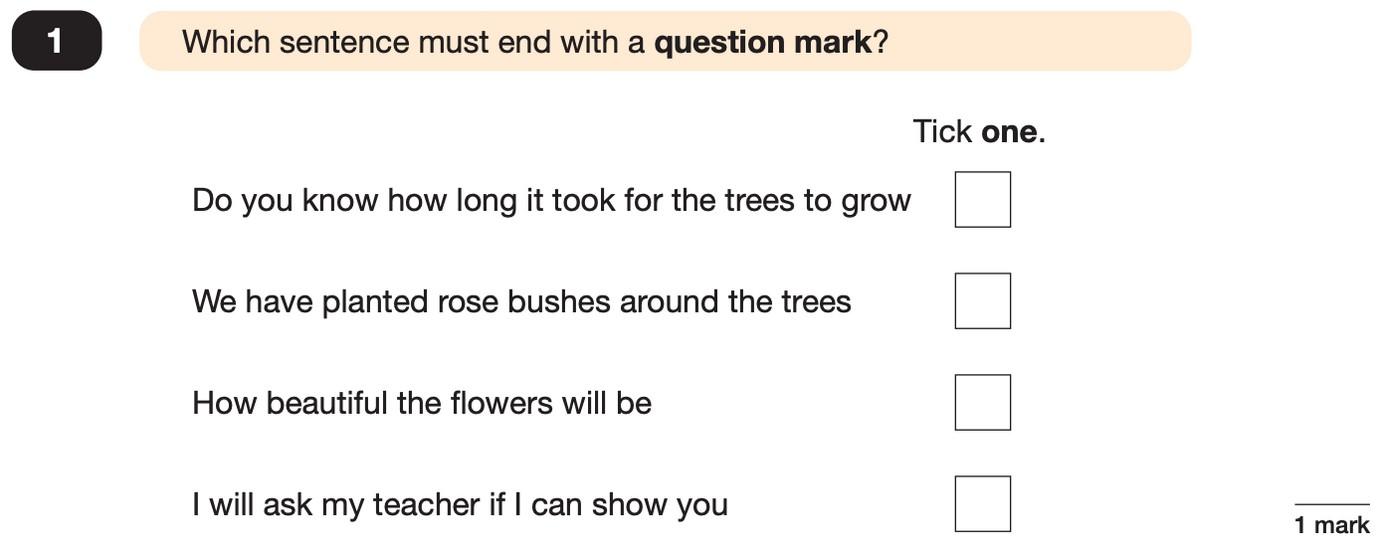






e.g. We were disturbed by the noise of the traffic.
Grammar, Punctuation and Spelling: Paper 2 (spelling) Paper 2 is a shorter paper that focuses solely on spellings.
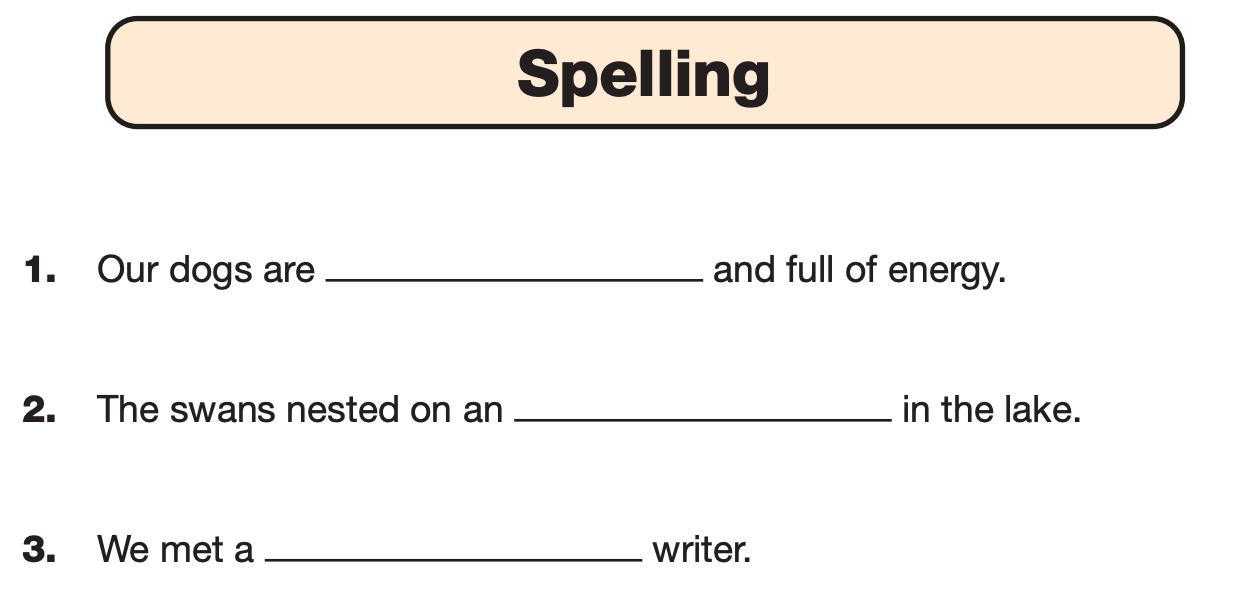


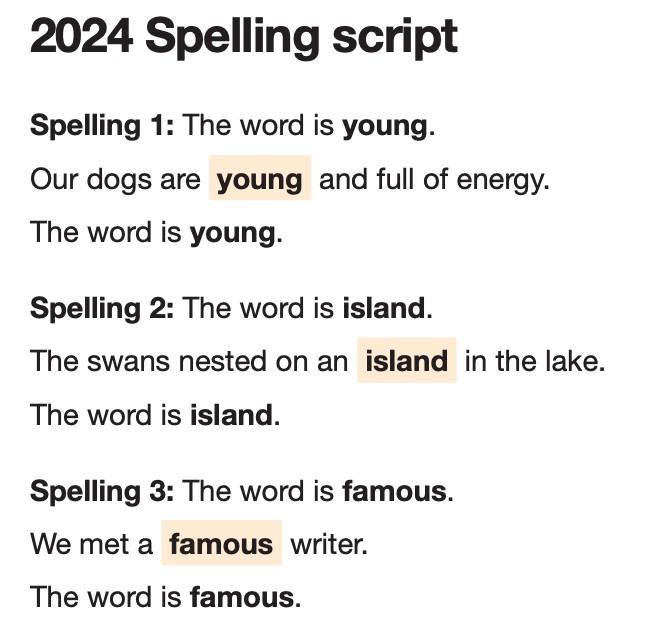

Encourage your child to complete the SPAG book
Access ed shed daily if possible
Work with your child on their weekly spellings
If chn are finding SPAG tricky access BBC Teach videos
How to support your child with SPAG at home
Introduce time limits

Read a variety of texts with them and note punctuation

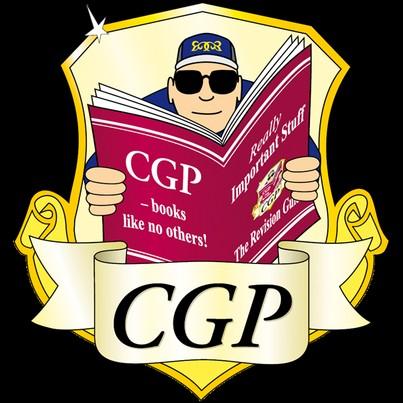
Correct spoken grammer
Retrieve and record information/ identify key details from fiction and nonfiction;
Make inferences from the text/ explain and justify inferences with evidence from the text;
Predict what might happen from details stated and implied;
Identify/ explain how information/ narrative content is related and contributes to meaning as a whole; Give/ explain the meaning of words in context;
Reading (Comprehension Paper) 60 Minutes
Summarise main ideas from more than one paragraph; Make comparisons within the text.

Reading
The reading SATs paper requires a range of answer styles.







Reading Example


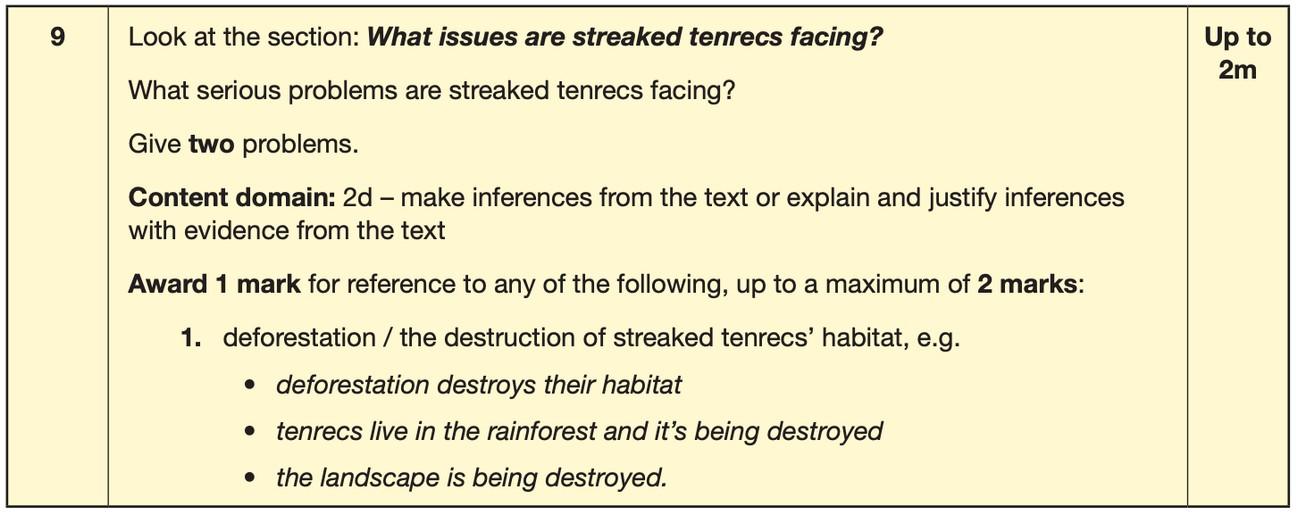


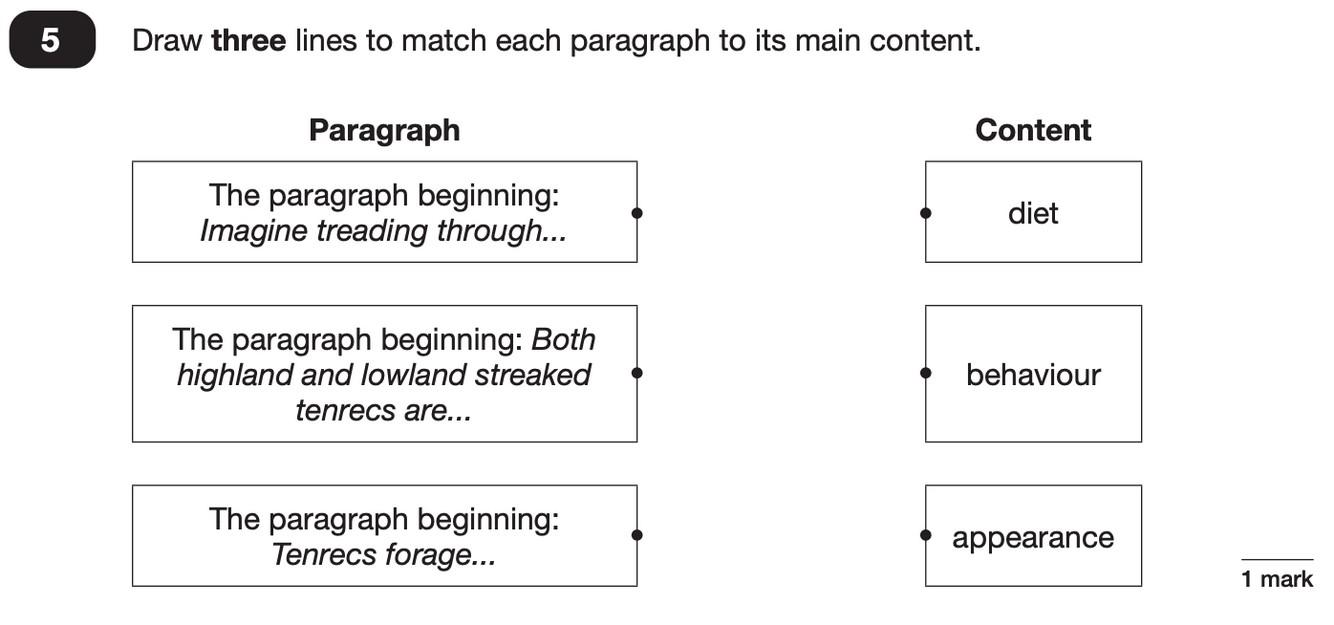

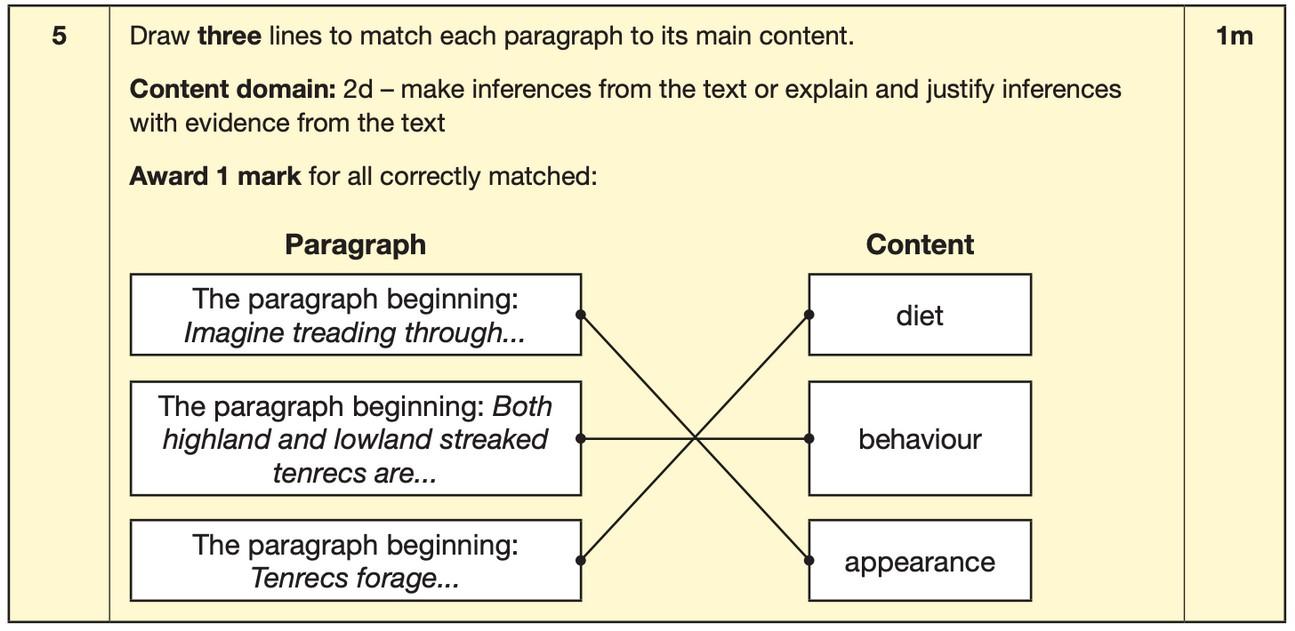

Reading Example questions: 3 mark question
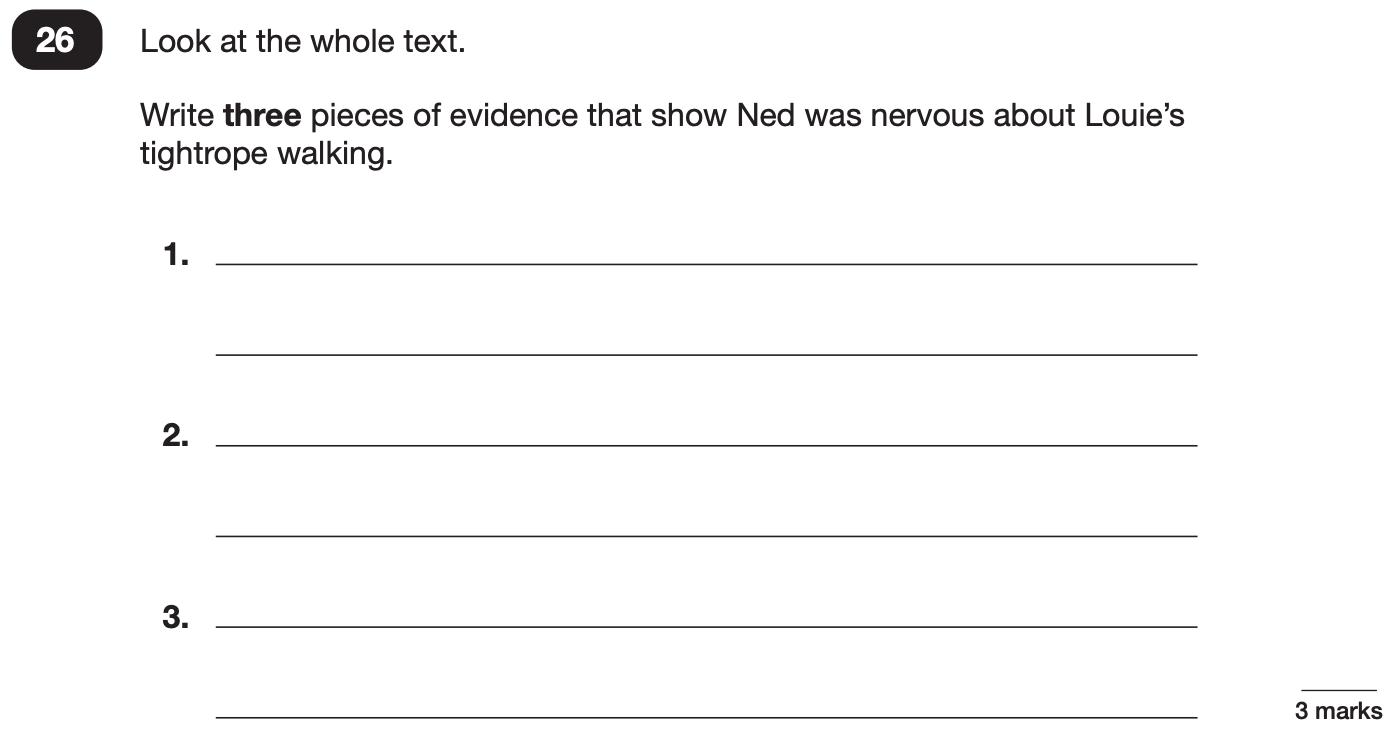


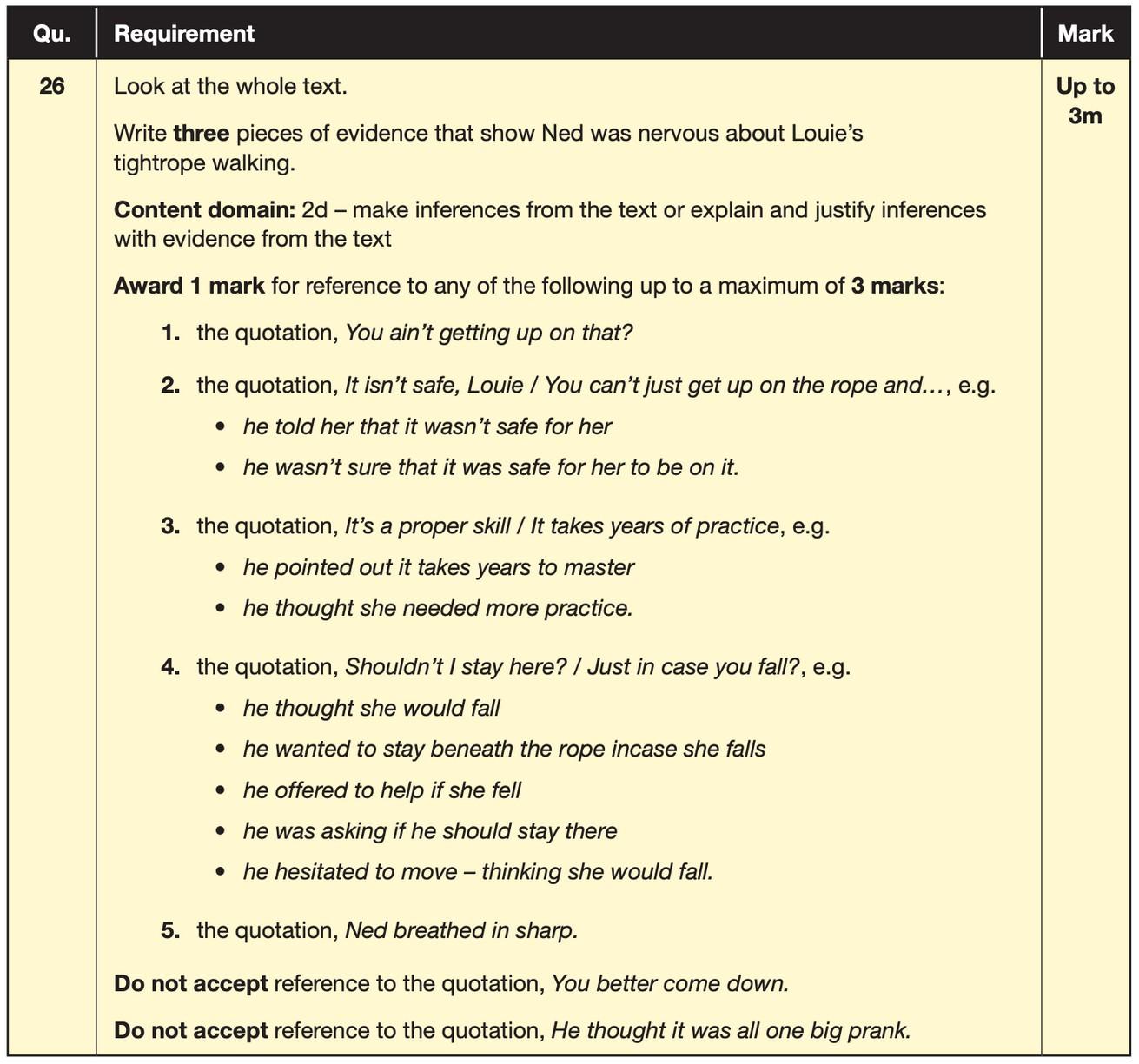

Reading
Since the current testing formation for the SATs began in 2016, there has been a tendency for three types of questions to be the most popular.
In the 2024 Reading SATs paper,
● 10% of marks could be gained from answering questions involving giving and explaining the meaning of words in context;
● 38% of marks could be gained from answering questions involving retrieving and recording information or identifying key details from a text;
● 44% of marks could be gained from answering questions involving making inferences from a text and justifying inferences with text evidence.
When reading with your child at home try focusing on these types of questions.

Talk to your children about what they are reading
Ensure you hear your child read throughout the week
Ask them to make predictions about the text
Ask your children to give opinions supporting their answers with evidence
How to support your child with reading at home
Introduce time limits

Read a variety of texts with them
Expose them to different genres
The four operations
Measurement (length, perimeter, mass, volume, time, money)
Statistics
Algebra
Number and place value
Mathematics Papers
Ratio and proportion

Fractions, decimals and percentag es
Problem Solving
Maths Paper 1 (Arithmetic)
The maths arithmetic paper has a total of 40 marks and lasts for 30 minutes.
The test covers the four operations (addition, subtraction, multiplication, division, including order of operations requiring BIDMAS), percentages of amounts and calculating with decimals and fractions.
Example questions:

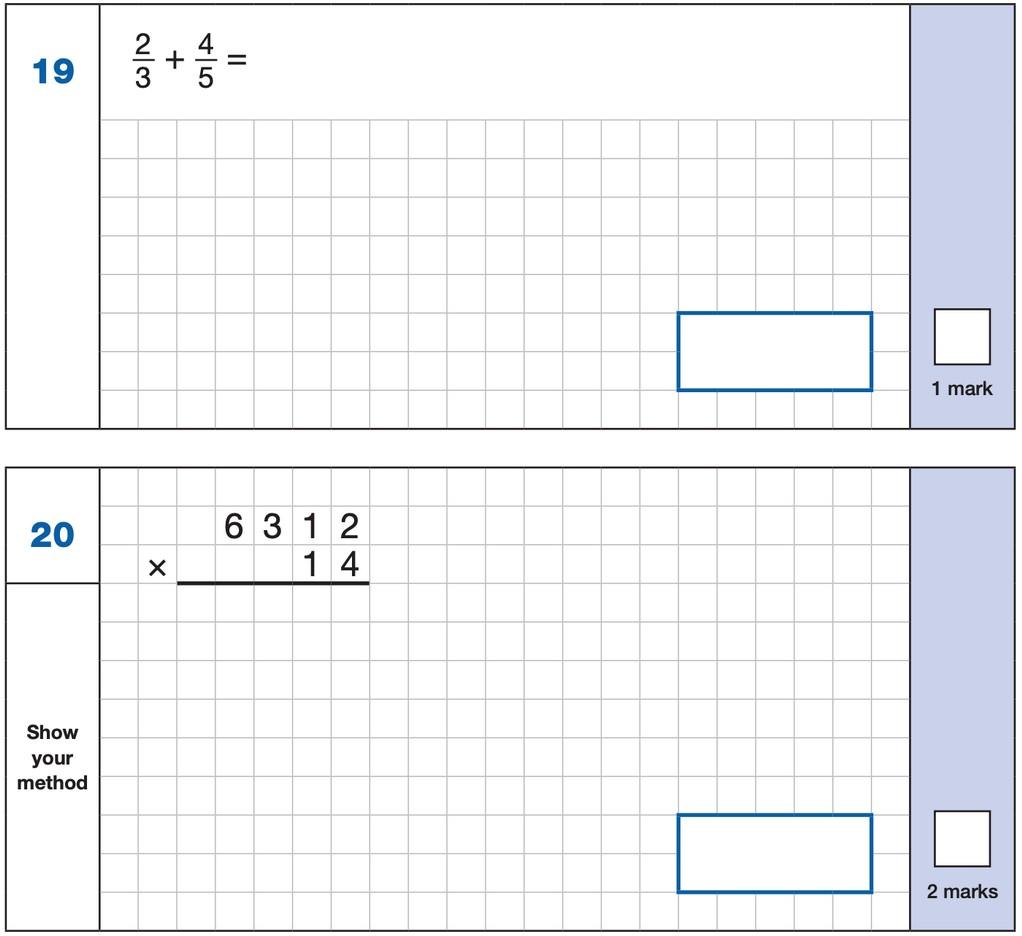

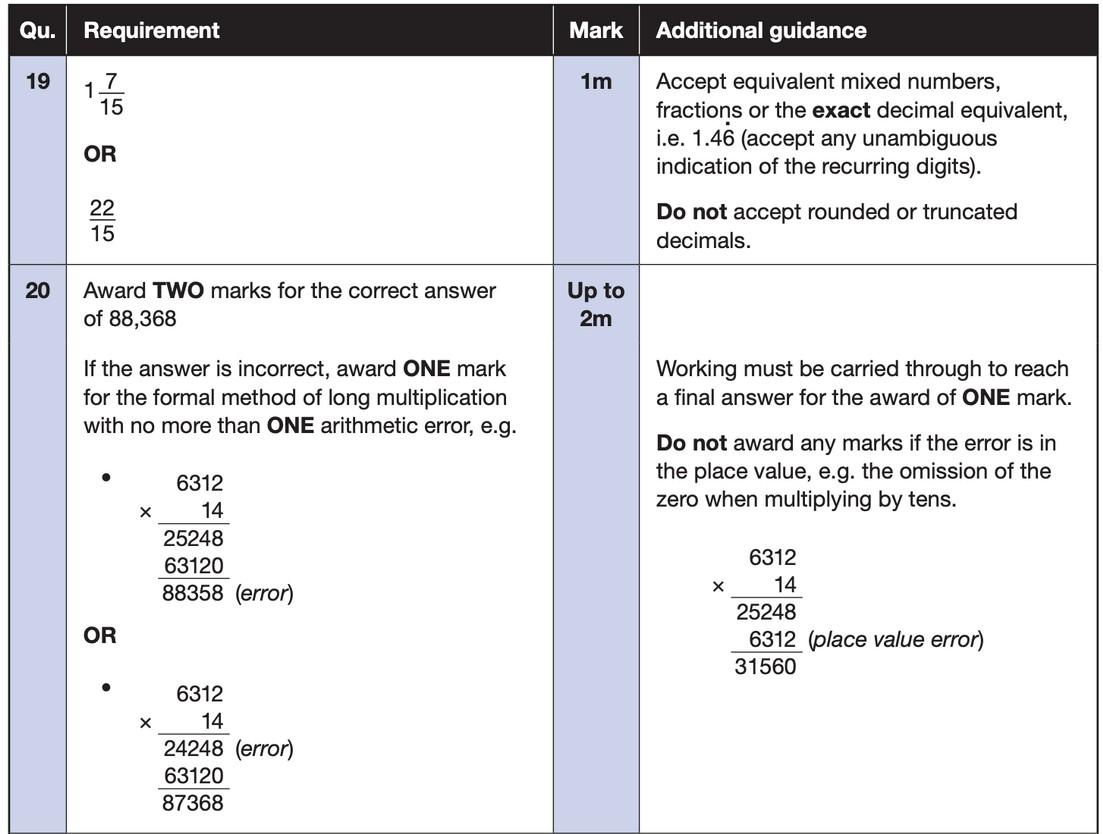

Maths Paper 1 (Arithmetic)
Example 1 mark questions:
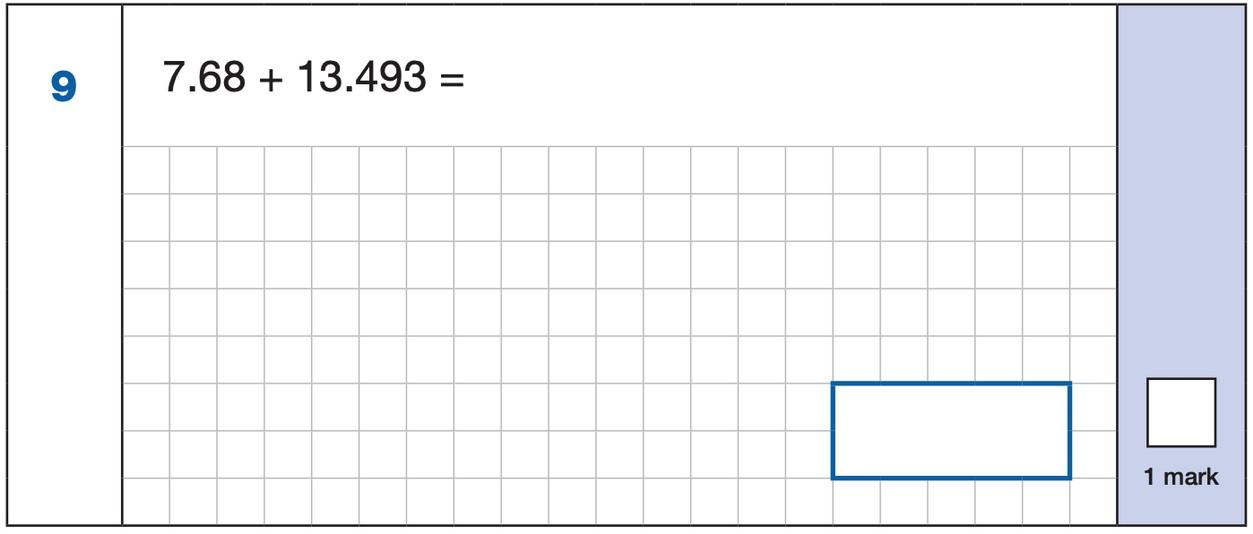

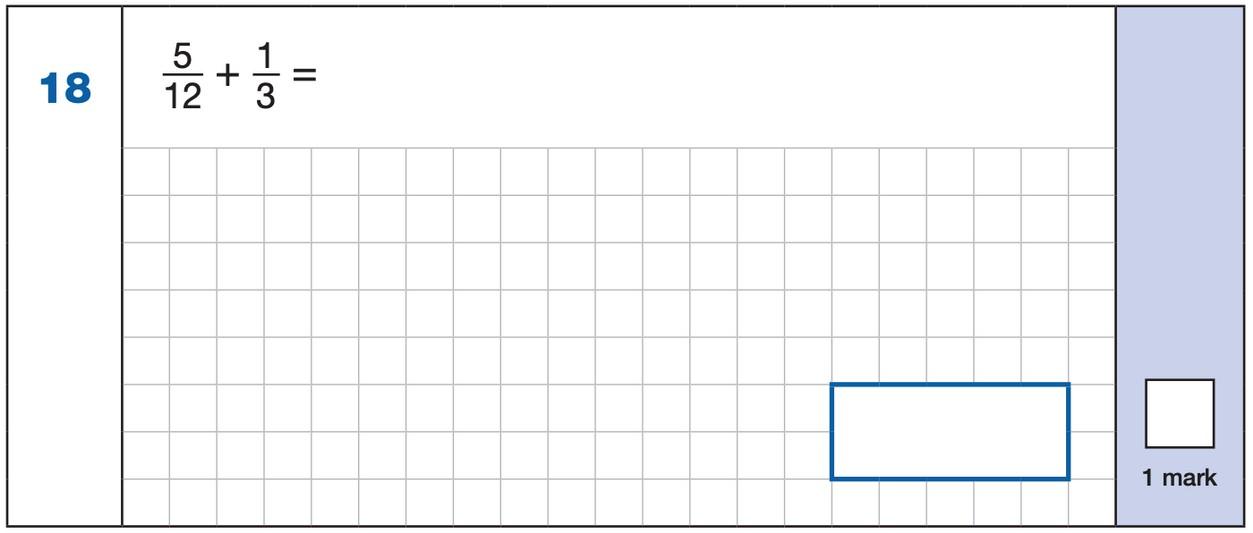


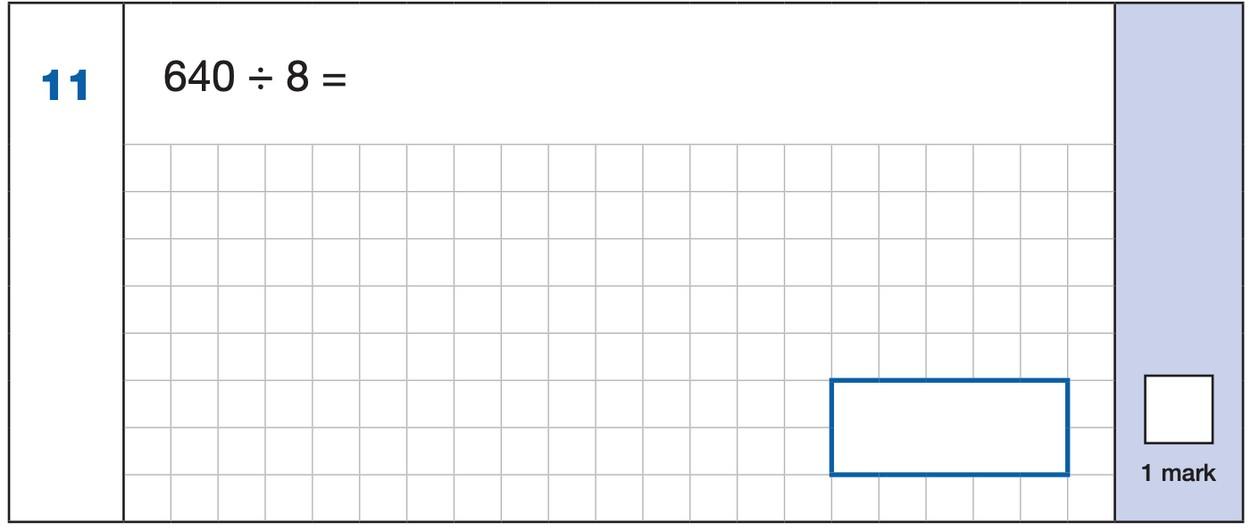
Mental method: Using known fact of 64 ÷ 8 = 8

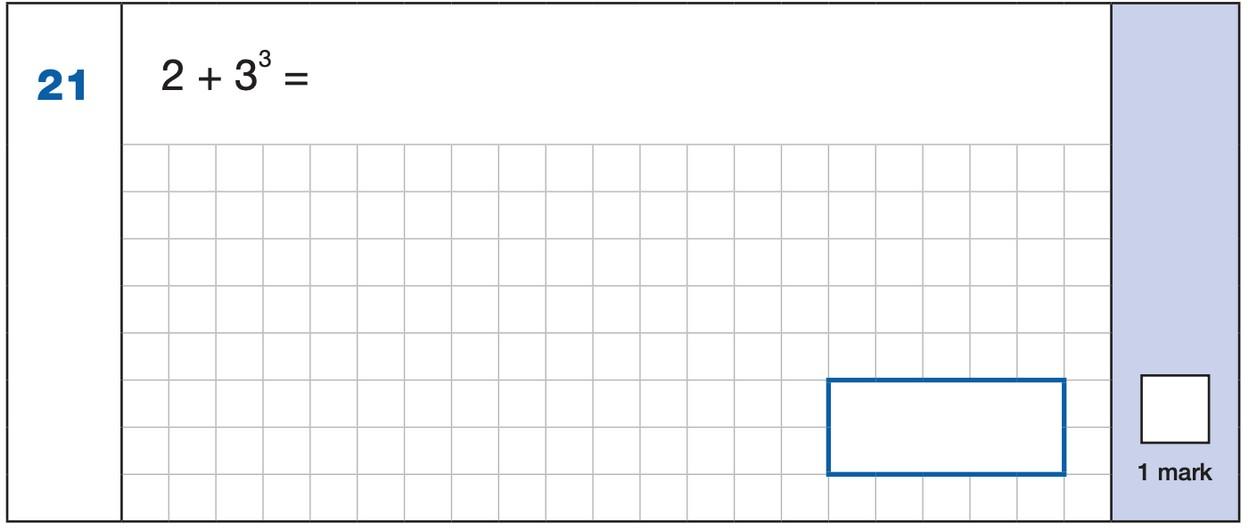
Maths Paper 1 (Arithmetic)
Example 2 mark question:
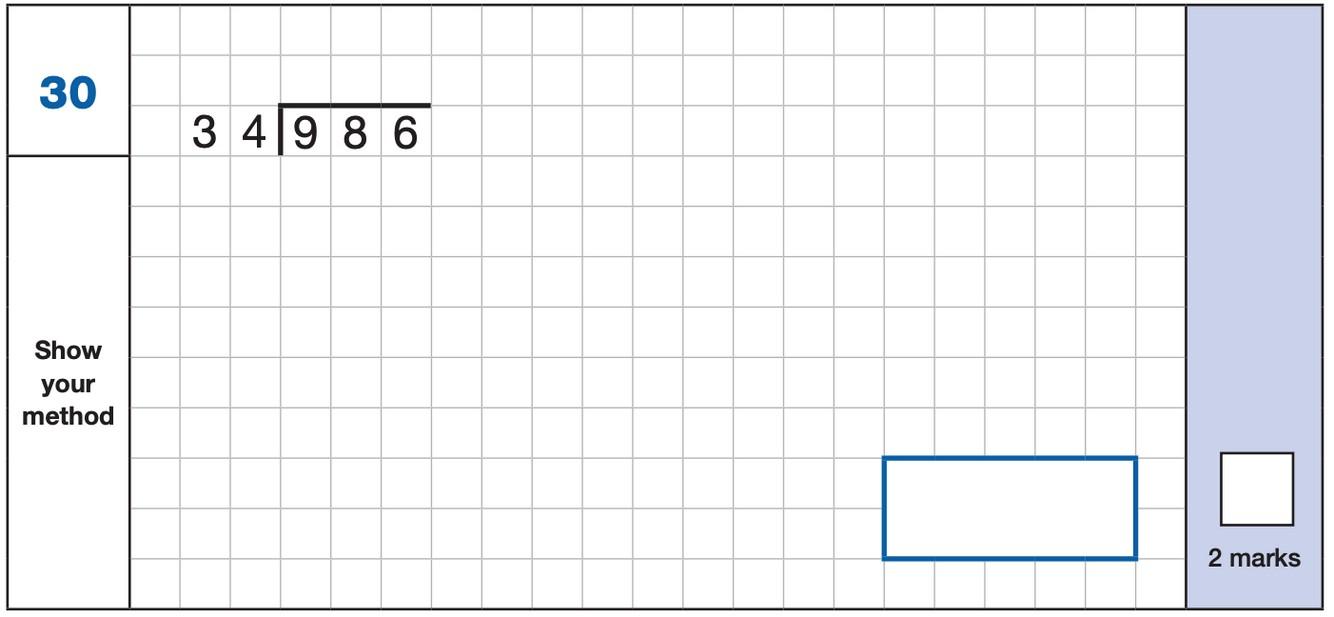




Maths Papers 2 and 3 (Reasoning)
Paper 2 will take place on Wednesday 14th May and paper 3 will take place on Thursday 15th May. These tests have a total of 35 marks each and lasts for 40 minutes each.
These papers require children to demonstrate their mathematical knowledge and skills, as well as their ability to solve problems and their mathematical reasoning. They cover a wide range of mathematical topics from key stage 2 including,
● Number and place value (including Roman numerals);
● The four operations;
● Geometry (properties of shape, position and direction);
● Statistics;
● Measurement (length, perimeter, mass, volume, time, money);

● Algebra;
● Ratio and proportion;
● Fractions, decimals and percentages.
Maths Papers 2 (Reasoning)
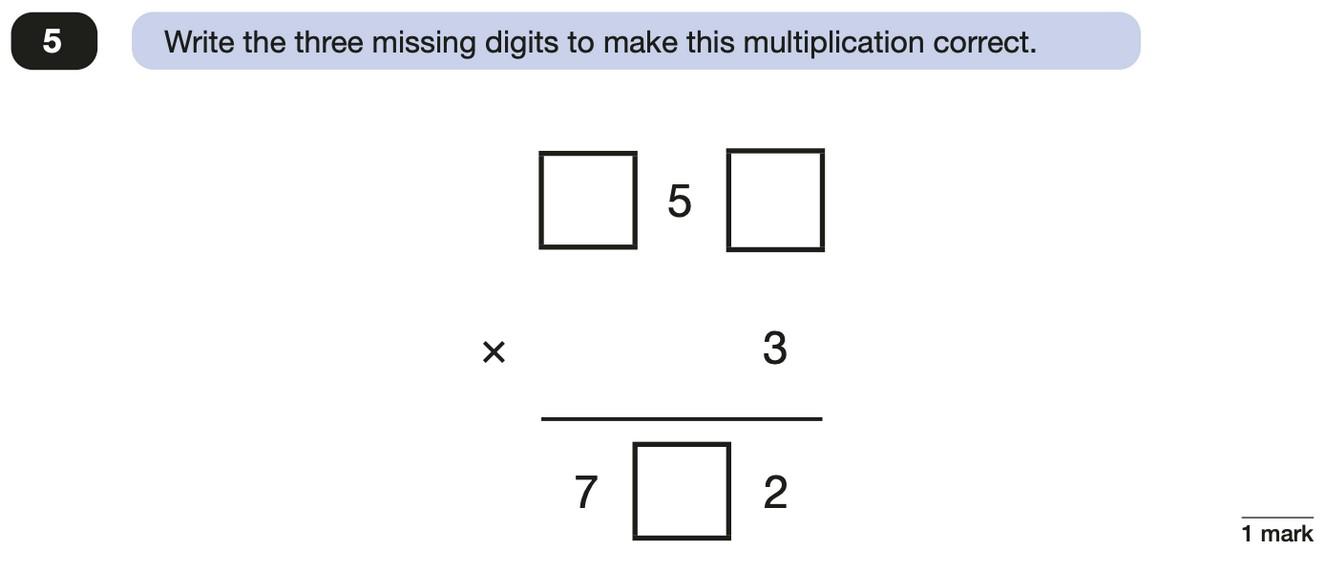

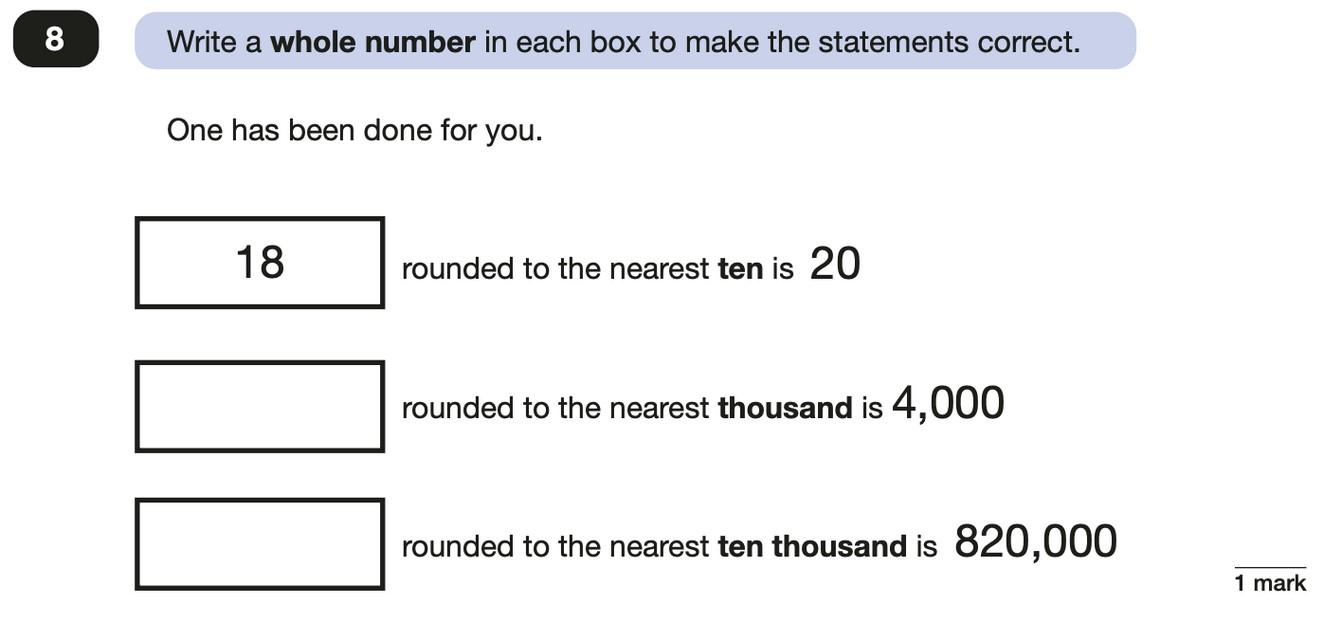


Maths Papers 2 (Reasoning)
Example questions:
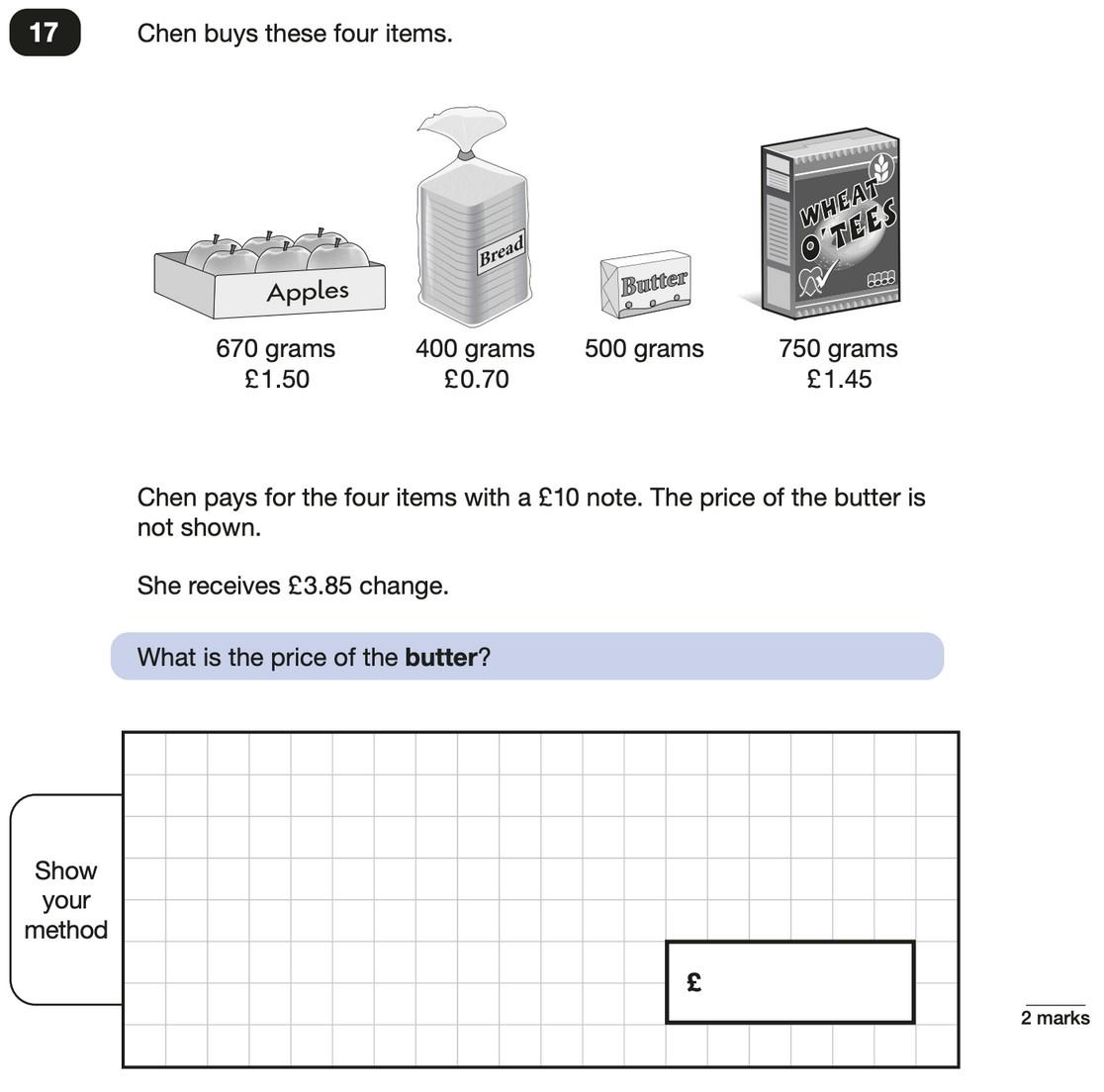


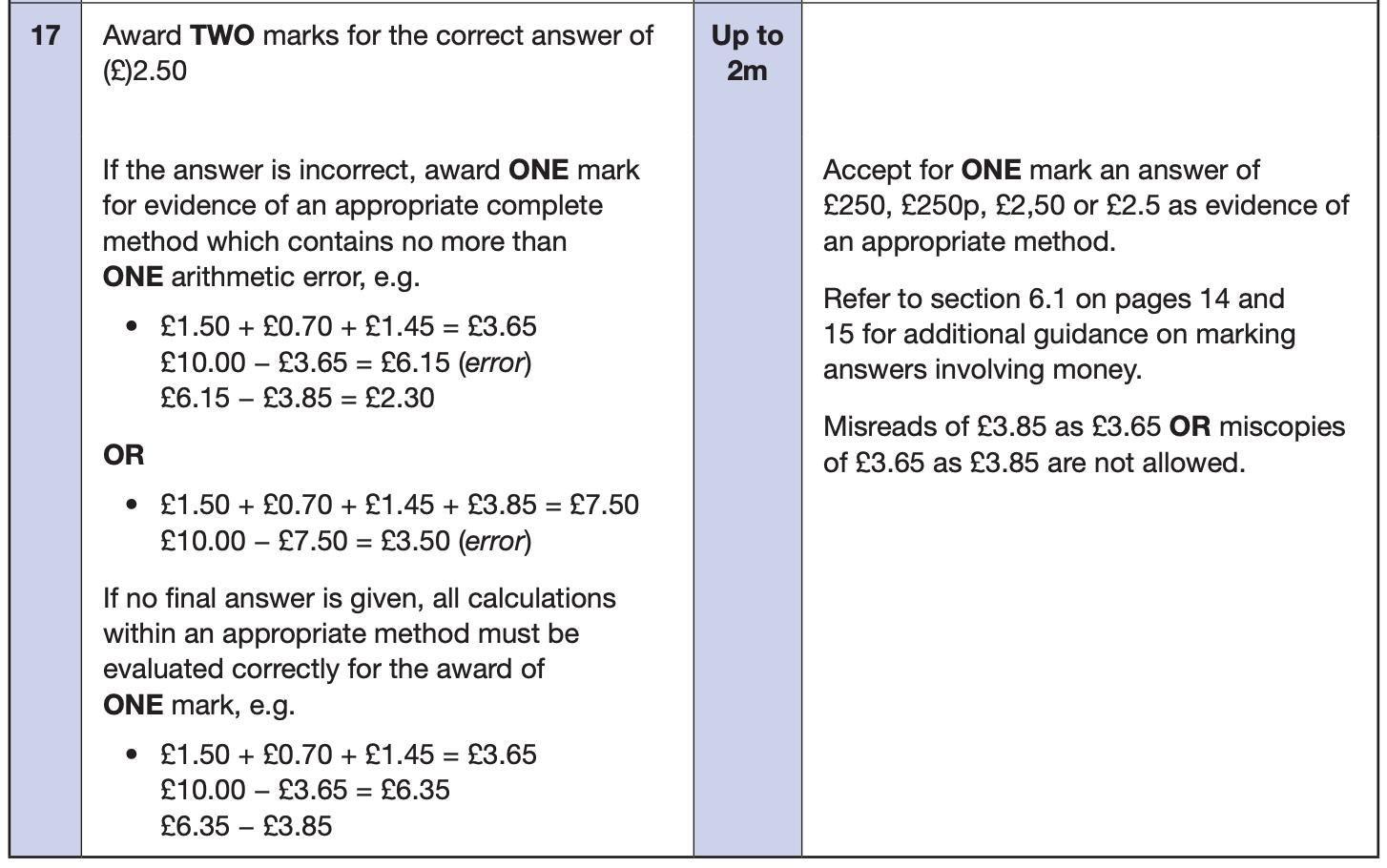

Maths Papers 3 (Reasoning)
Example questions:
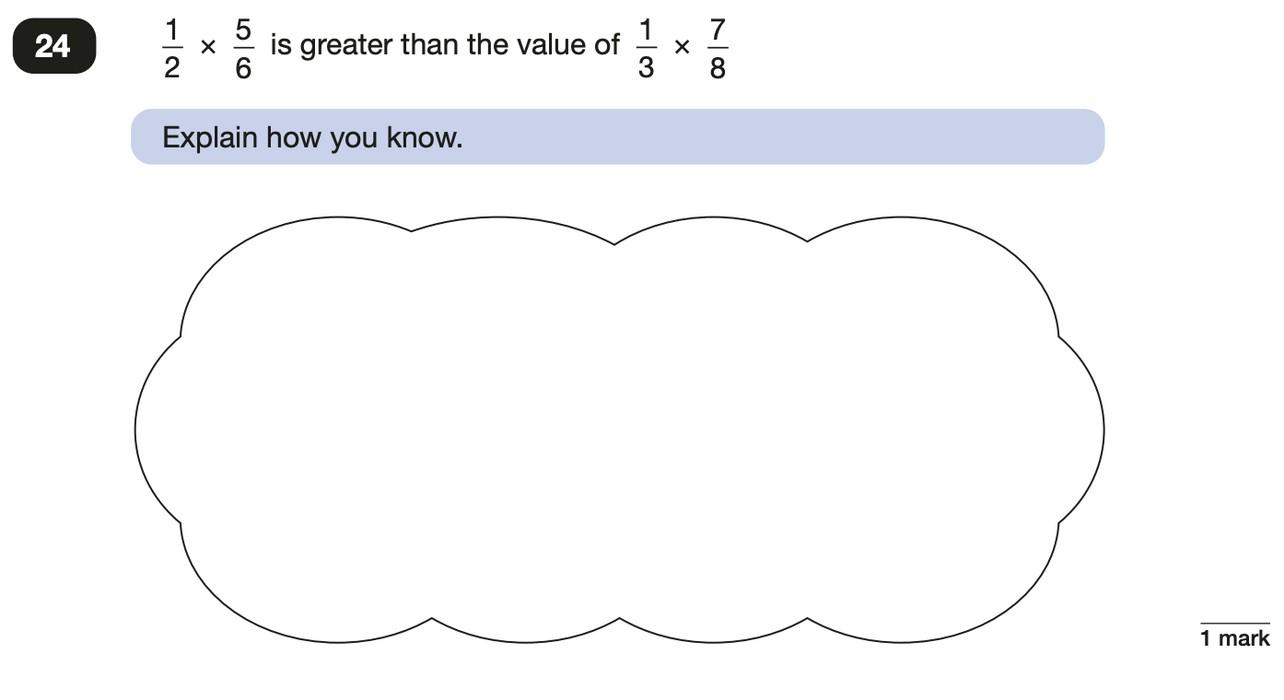

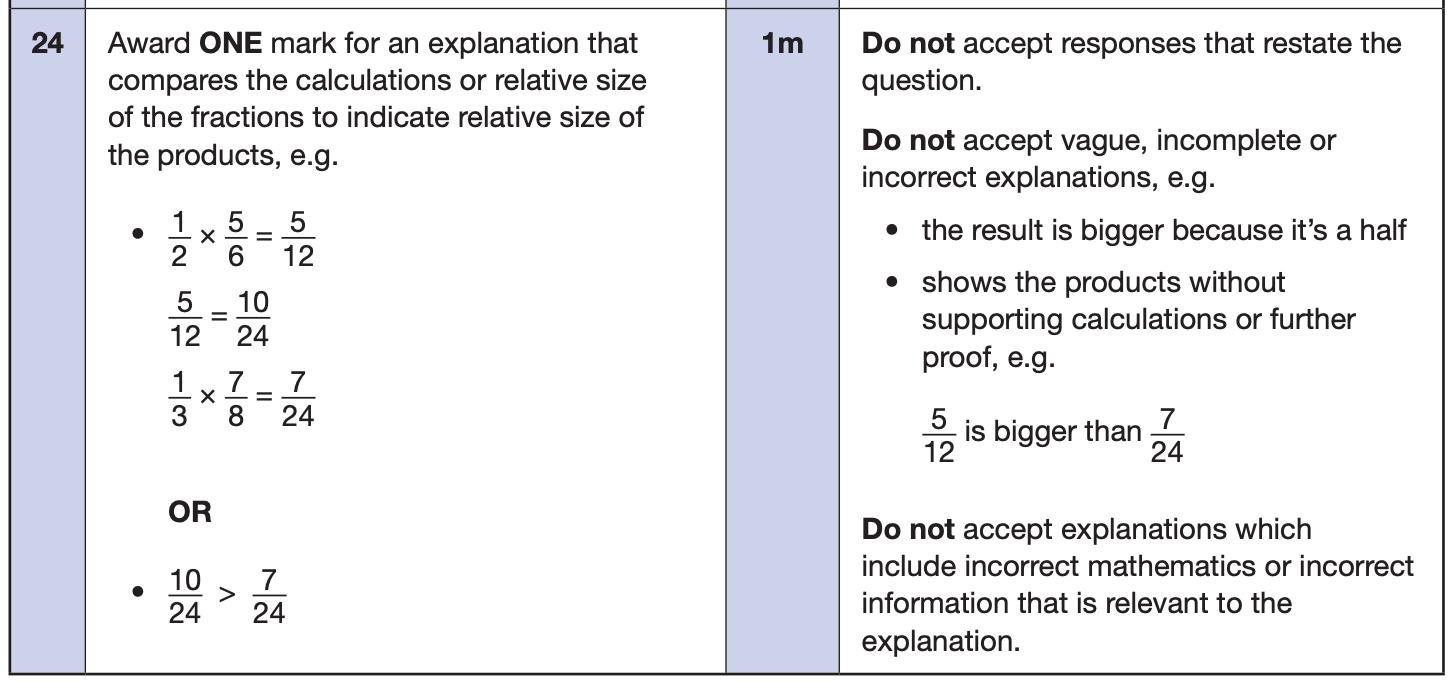


Maths Papers 3 (Reasoning)
Example question:
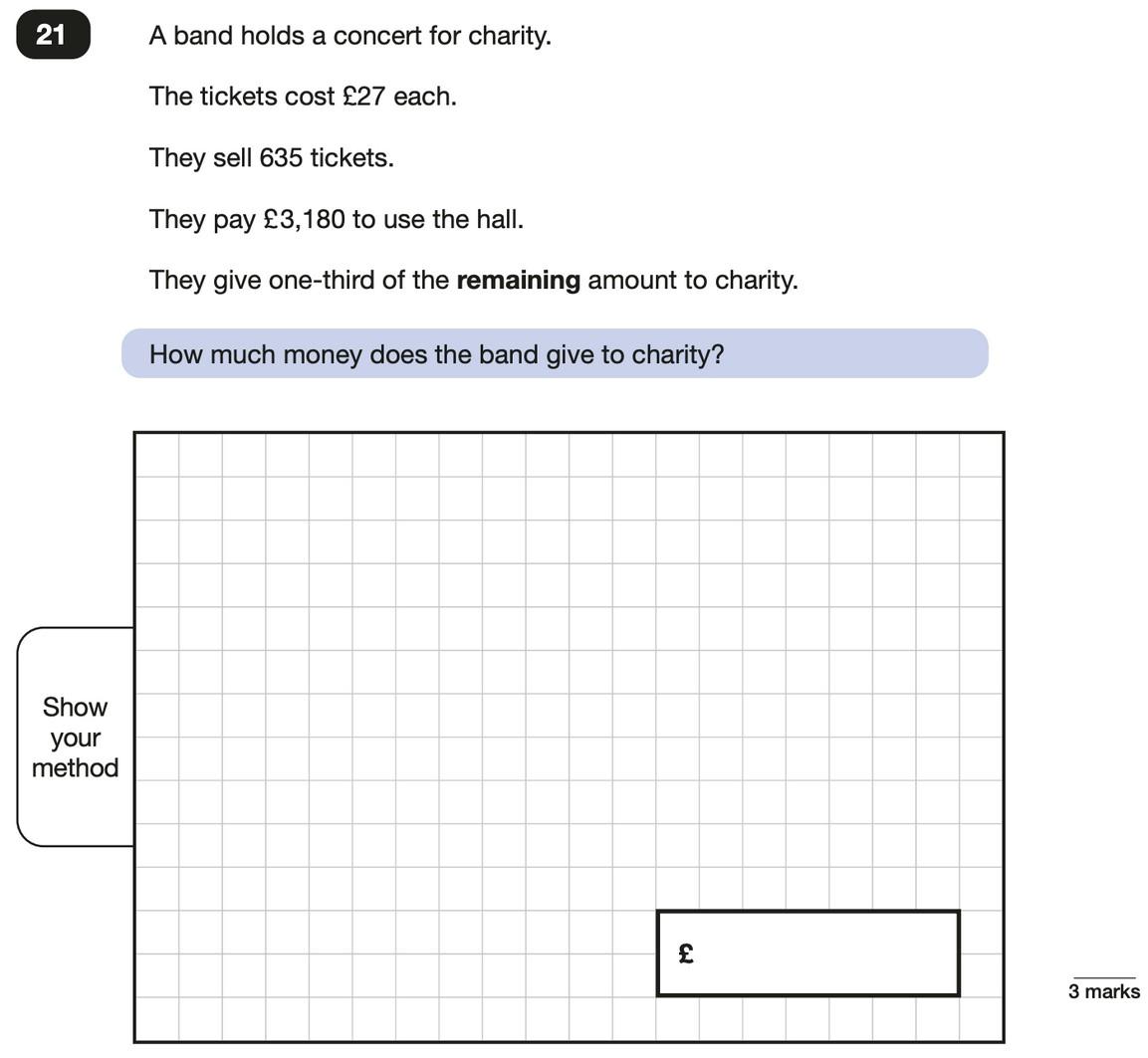


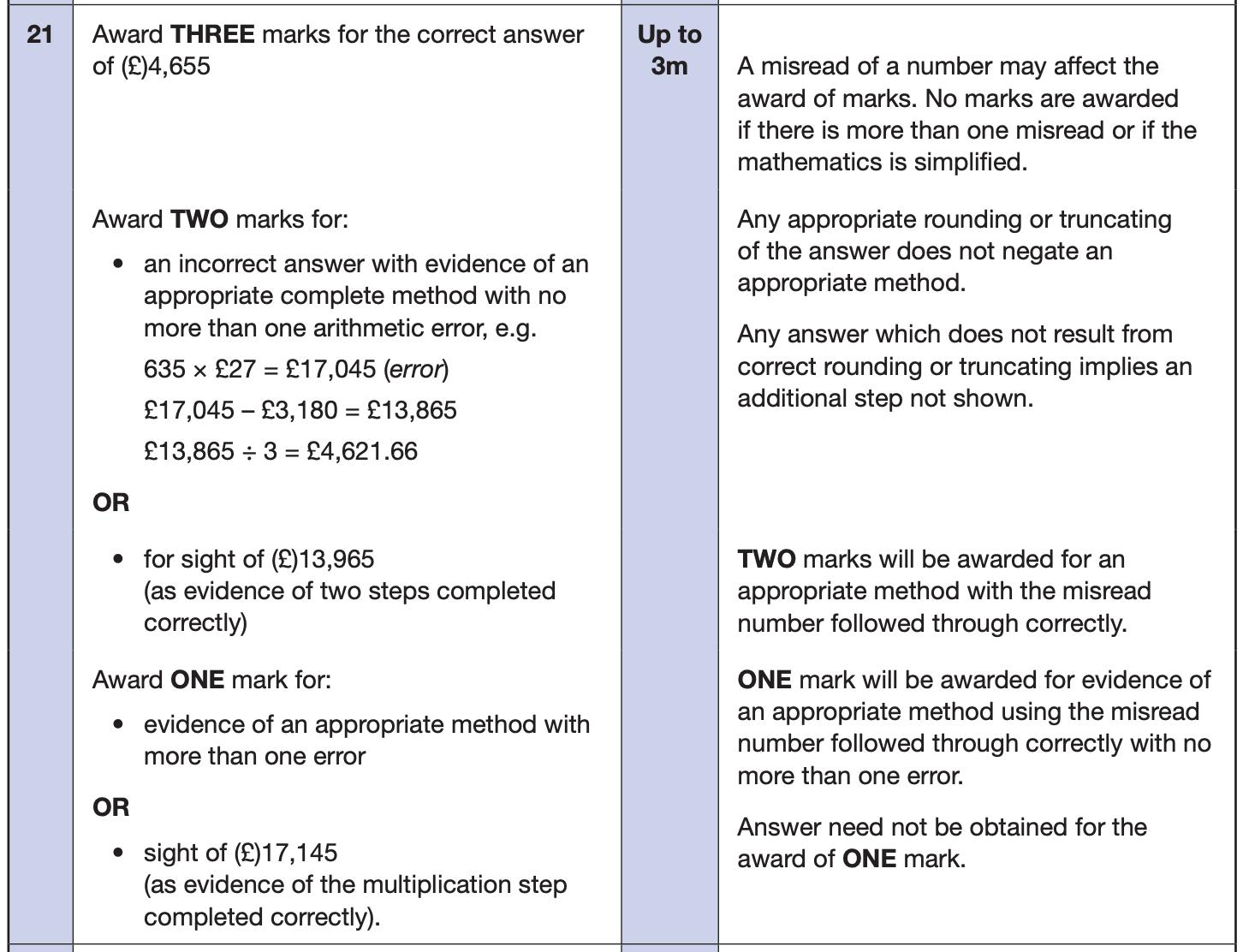

Encourage opportunities for counting coins and money; finding amounts for calculating change when shopping
Play mental maths games including counting in different amounts, forwards and backwards
Play times tables games
Encourage opportunities for telling the time
Read longer number e.g. house prices
How to support your child with Maths at home


Look for examples of 2D and 3D shapes around the home


Identify, weigh or measure quantities and amounts e.g. when cooking
Play games involving numbers or logic, such as dominoes, card games, monopoly


Writing Grades
Writing is Teacher Assessed


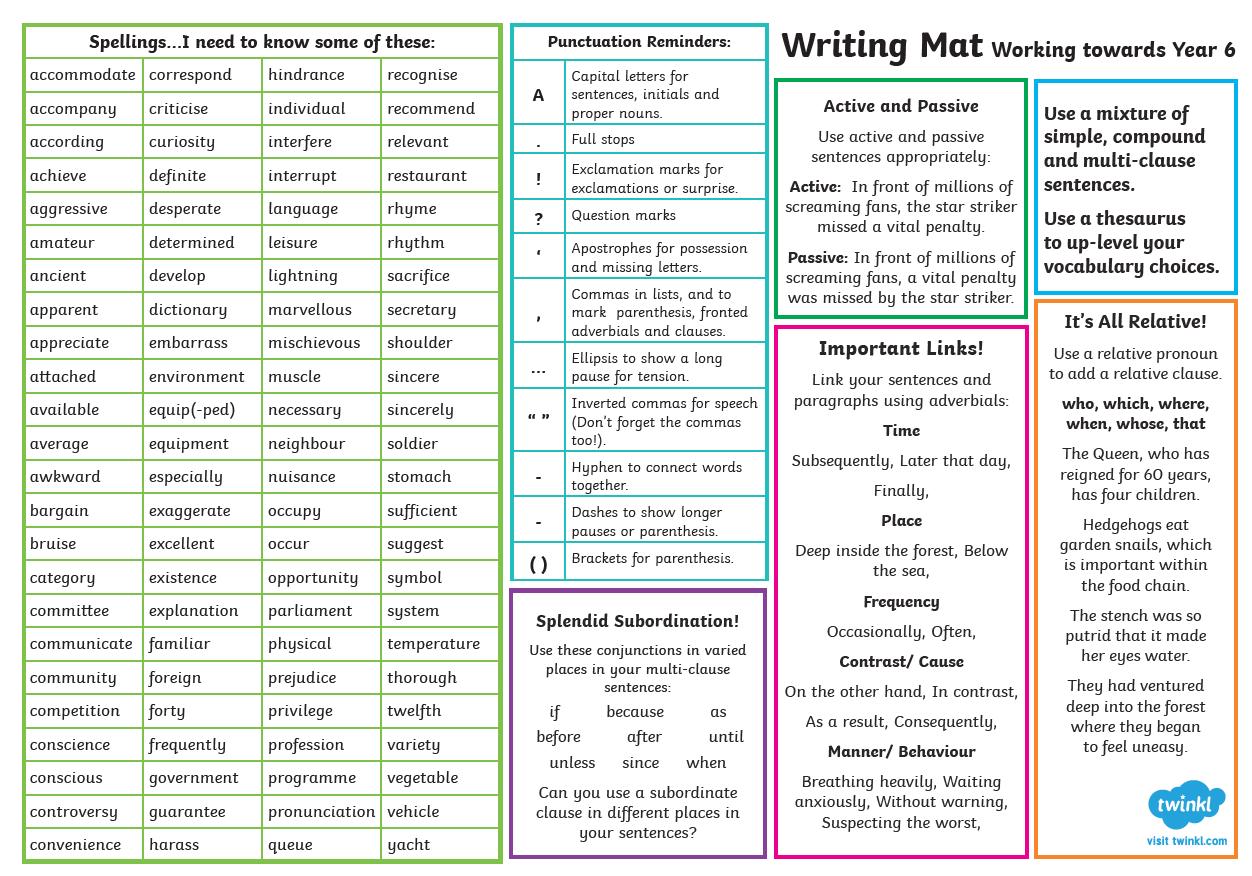
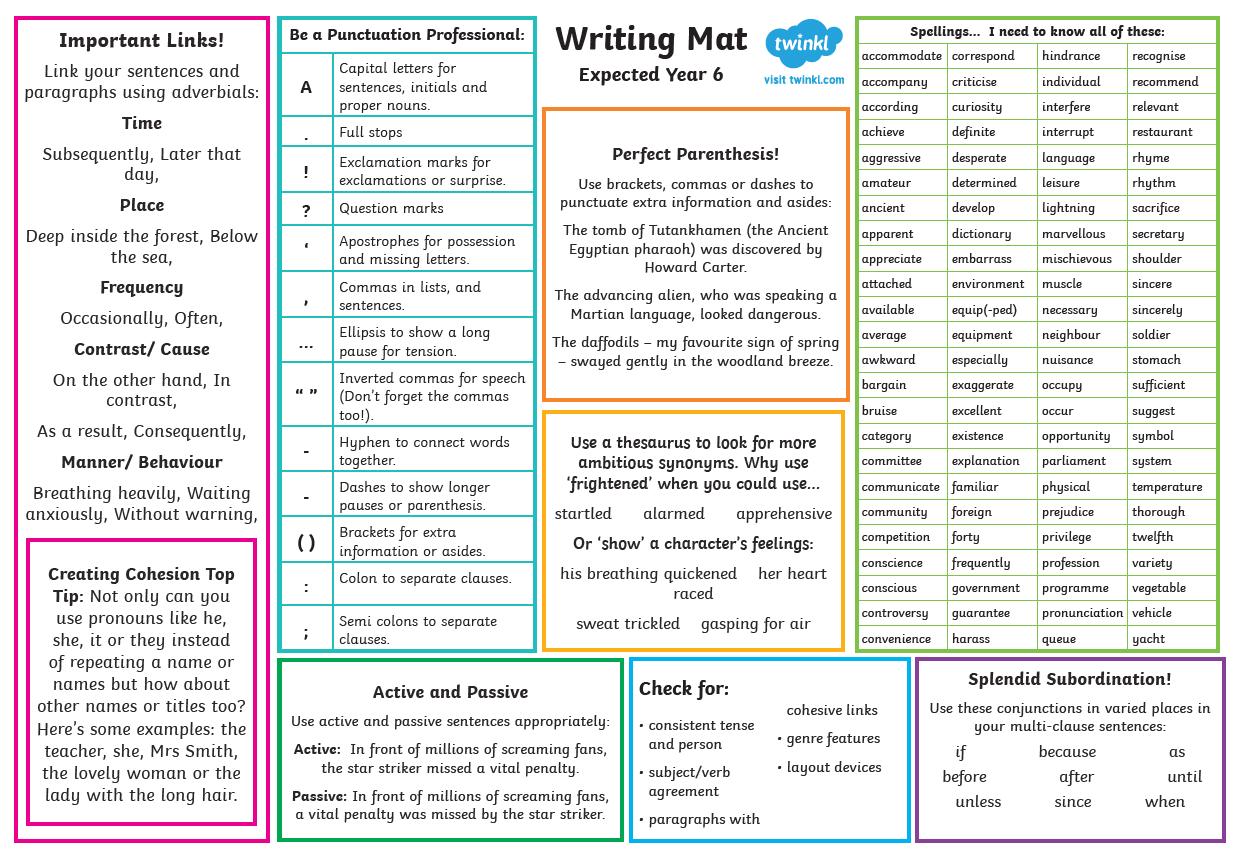
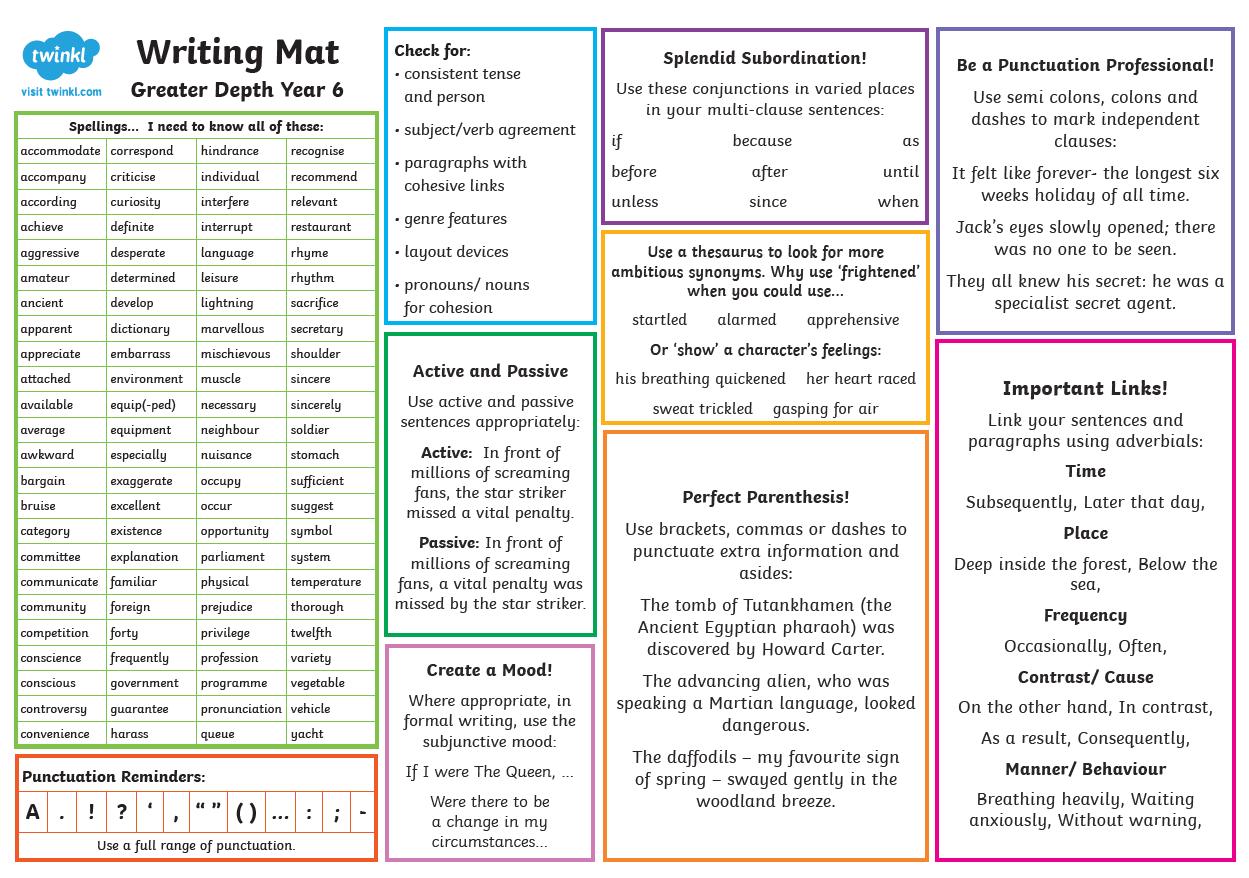

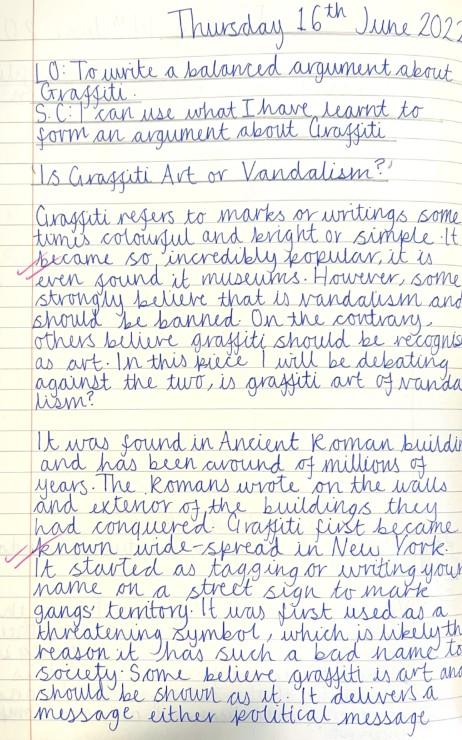


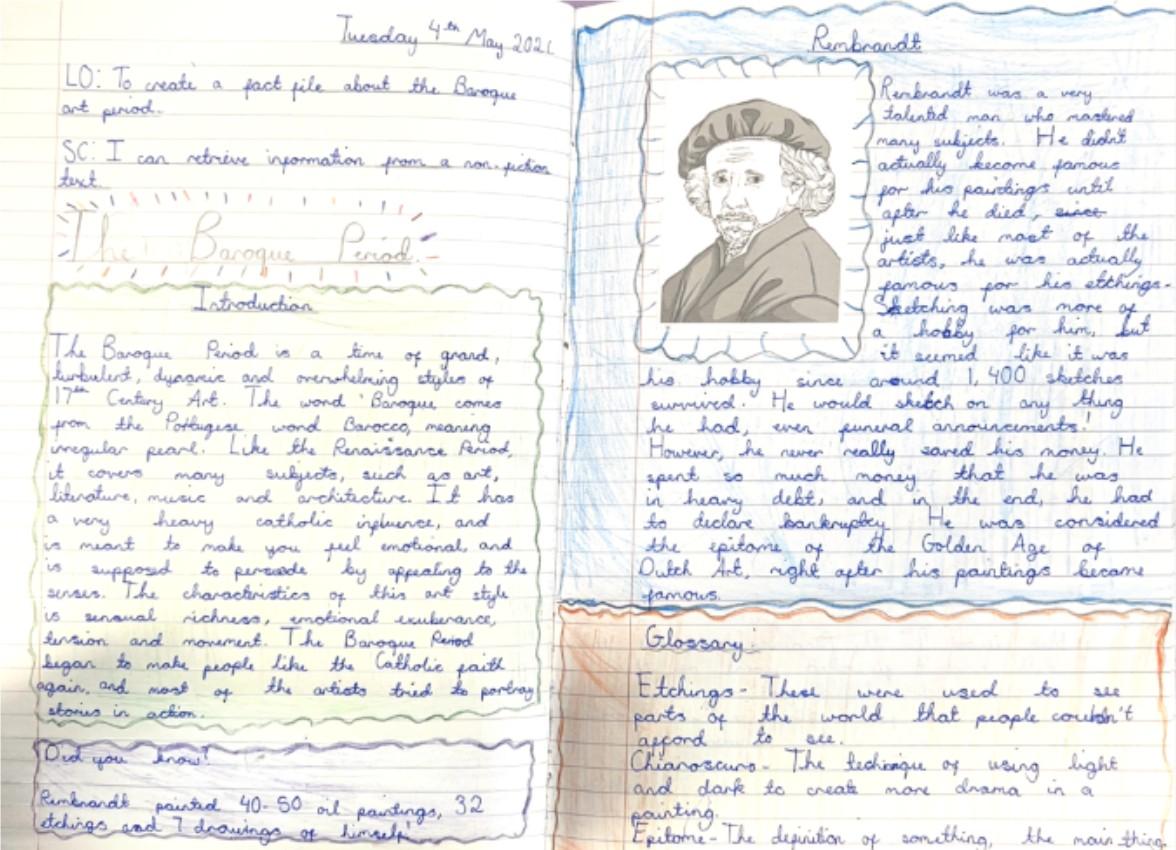
Supporting your child in preparing for the SATs
Firstly, a positive attitude goes a long way. Give them as much encouragement and support as you can (but we don’t need to tell you that)!
Tips:
● Don’t use past papers as they are used in school to prepare the children.
● Attend any SATs meetings at school (or read any literature sent home).
● Talk to your child’s class teacher if you have any concerns rather than worry your child.
● Encourage your child to talk to their teacher or a trusted adult (including yourself) about their anxieties. Don’t forget that a small amount of anxiety is normal and not harmful.
● Give your child a quiet, distraction free space to complete homework or study.
● Give your child time to go outside and reduce screen time.

● Ensure your child is eating and drinking well and getting a good amount of sleep.
● Plan something nice and fun for the weekend after SATs. This will give them
Supporting your child in preparing for the SATsFurther tips:
● Encourage children to do their homework throughout the school year.
● Create a revision timetable that works for you and your child. For some families, 10 to 20 minute activities over a few days works best. For others, a longer study session one day a week might be better.
● Keep revision light. Going over key skills (times tables, real world mental maths as you are shopping or cooking) is a good way to keep revision light.
● As we said before, avoid using past papers. There are plenty of free or inexpensive SATs practice materials for parents available.

Things to remember about SATs
SATs focus on what children know about Maths and English. They will not reflect how talented they are at science, geography, art, PE…, and they certainly won’t highlight all their amazing personal characteristics.
SATs don’t tell the whole story. Their results will say if they did or did not meet a certain standard but not necessarily by what margin. These thresholds change each year according to the overall national performance, so what was classed as ‘meeting the expected standard’ this year might not be the same as last year. Your school may be able to provide you with more detailed feedback.
SATs are only four days out of a whole Primary School career. In reality, there's one or two papers each day that last 30 to 60 minutes.

What to do if you are worried about your child
Talk to the school
Sometimes concerns present at home and not at school. If you notice a change in your child, talk to the school so that everyone concerned can offer the support needed.
Talk to your child
Talk to your child about what aspect of SATs concerns them the most. If you can help them pinpoint what is bothering them the most, you can take specific steps to help reassure them.
Encourage your child to talk to their teacher
SATs are obviously linked to school. Don’t be surprised if your child would prefer to seek reassurance from teachers over family members.
Try not to project your own anxieties or views about the SATs
Children can be very intuitive. If they see that you are anxious, this could add to their own anxieties. Similarly, if you don’t believe in SATs, your child may reflect this view.

Advice for Year 6 children
● Listen to your teacher.
● The adults you work with all want you to do your best.
● Get plenty of sleep and eat well, this will help your brain.
● Read all the questions carefully. This can help you to avoid silly mistakes.
● Don’t panic. There may be questions you think you can’t answer. Take a deep breath. Read it again. You can always move on and go back to it later. It’s often better to write something rather than nothing.
● Remember that the Year 6 SATs last for 4 days out of your whole life!
“Stay focused in class so you don’t have loads of extra studying to do at home!”
– Year 7 pupil’s advice.


Expectations
• Always try your best – working hard is the key to success

• Never give up when things get tough – we are here to help you
• Always listen to the advice and feedback from your teachers
• Be a reflective learner
• Try to be organised
• Always be kind and respectful to those around you
• We are a team! Remember that!

• Always try to make yourself proud! Remember you are AWESOME!

CREDITS: This presentation template was created by Slidesgo, including icons by Flaticon, and infographics & images by Freepik

Year 6 is a fantastic Year! Enjoy it!
